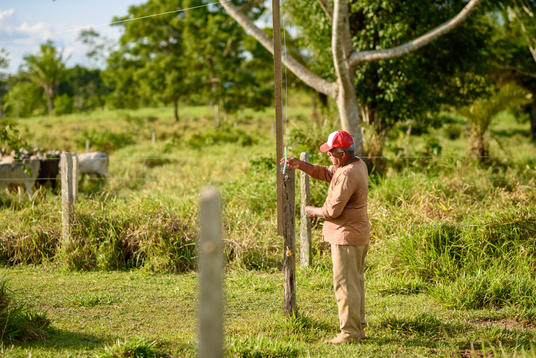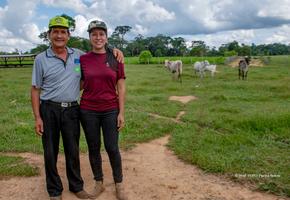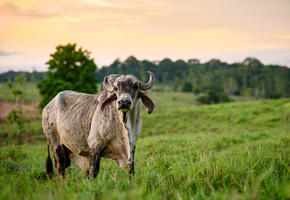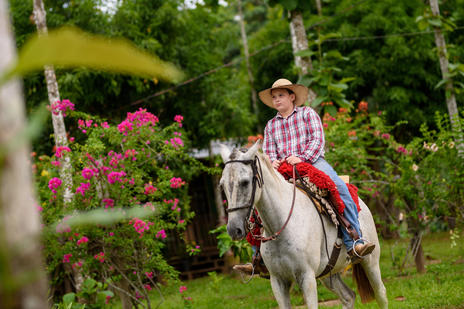
Overview
This project has introduced nature-based solutions in Madre de Dios, with the aim of sequestering and storing GHG emissions, improving local livelihoods and supporting Peru's Nationally Determined Contributions (NDCs) towards 2050.
It has focused on three main components:
- Local capacity-building through farmer field schools.
- Knowledge sharing with wider state and regional governments.
- Creating platforms for stakeholder dialogue to generate and facilitate conditions for marketing and financing.
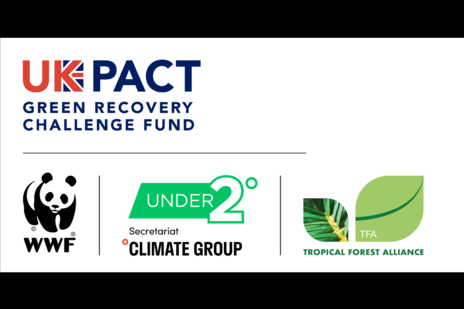
About the project and its partners
Climate Group has worked with WWF Peru and the Tropical Forest Alliance (TFA) to support technical capacity building around silvopastoral systems in the Tampobata and Tahuamanu provinces.
These provinces are located in Madre de Dios, a department in the Peruvian Amazon. Here, extensive cattle farming is the number one cause of deforestation.
The project was funded by the Green Recovery Challenge Fund, under UK PACT (Partnering for Accelerated Climate Transitions) in Peru.
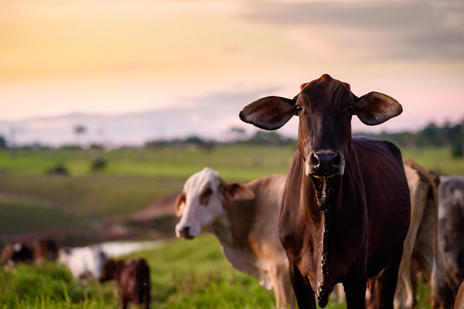
Project objectives
- Train farmers in deforestation-free livestock practices, such as silvopastoral and regenerative methods, through farmer field schools while incorporating positive gender and youth approaches.
- Develop and disseminate knowledge products regarding regenerative ranching best practices among farmers and government officials across the region.
- Develop opportunities through a public-private multi-stakeholder process to solve financial bottlenecks impeding the transition toward silvopastoral systems.
- Create a regional public-private coalition for sustainable production in Madre de Dios that sets the rules and a roadmap for the promotion of deforestation-free livestock in the region.
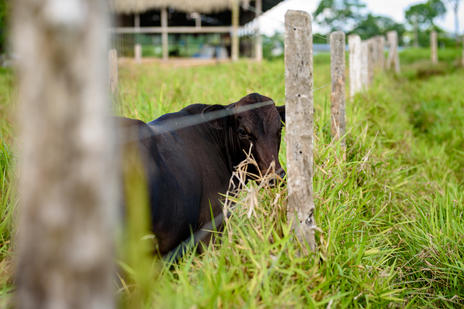
The results
The project has demonstrated the value of regenerative cattle ranching as an alternative way of farming that can restore soil health and reverse the impacts of deforestation: protecting and revitalizing surrounding ecosystems and making farming more sustainable.
It's also built technical capacity locally through the development of silvopastoral systems, which intersperse cattle farms with wooded areas to provide a buffer against environmental harm.
These wooded areas help to protect local biodiversity as well as providing farmers with extra, diversified income from forest products.
Farmer interviews
We spoke with three farmers involved in the project. Verónica, Yenle and Yony shared their experiences from the project, and their aspirations for a sustainable future in farming.
An interview with Verónica Cardozo
An interview with Yenle Cruz Quispe
An interview with Yony Oscar Portocarrero
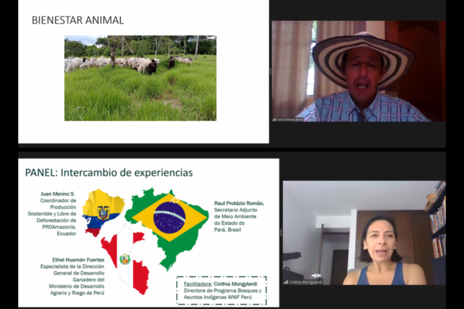
Exchanging knowledge
Climate Group brought together governments and experts to showcase results of the project.
Having spent time working directly with farmers, governments and experts in states and regions that make up this area, this was an opportunity not just to share the results of the project, but to hear what people had learnt and discuss how this could be used in other parts of the world.
Project partners & supporters
UK PACT (Partnering for Accelerated Climate Transitions)
UK PACT (Partnering for Accelerated Climate Transitions) is a £60m flagship programme under the International Climate Finance (ICF) portfolio. It is part of the UK’s £5.8bn commitment to International Climate Finance by 2021 to tackle climate change.
This project is a part of the Green Recovery Challenge Fund, which is funded by UKAid from the UK Government.
WWF
WWF is the leading global conservation organization, with a presence in more than 100 countries and the support of more than 5 million partners. In Peru, WWF has operated in Madre de Dios since 2000, working across several projects related to forest, indigenous peoples, fresh water and wildlife.
Also, WWF-UK manages £4 million in programme support to WWF offices in the Amazon region, including support to improve cattle ranching in Colombia and Brazil.
Tropical Forest Alliance
The Tropical Forest Alliance is a multi-stakeholder partnership platform to support the implementation of private-sector commitments to remove deforestation from key tropical supply chains such as cocoa, palm oil and beef.
Hosted by the World Economic Forum, its 170+ alliance partners include companies, government entities, civil society, indigenous peoples, local communities and international organizations. In Peru, TFA's workplan is implemented through the Coalition for Sustainable Production.
